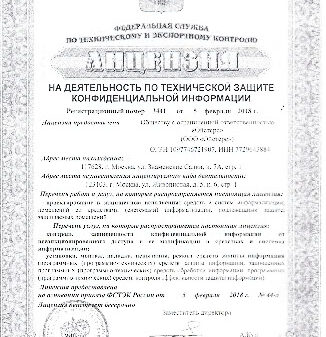BEIJING — The applause started out slowly, with just single claps, and then a smattering of them rained down on the teenager alone, so alone, at center ice.
That girl, 15-year-old Kamila Valieva of Russia, had made it through the past week of accusations and insinuations after it was discovered that she had tested positive for a banned heart drug several weeks before the Olympics. She was cleared to skate just a day before Tuesday’s women’s short program at the Beijing Games.
With some fans in the arena clearly supporting her, she was finally back at the main rink doing what she had come to do at this Olympics. Some say she is so good and performs so effortlessly that she appears born for this.
With long, beautiful lines and the sublime grace and agility of a prima ballerina, Valieva — for a movingly sad few minutes — floated through most of the routine she performed to “In Memoriam” in a hushed the arena. She stumbled on her opening jump, a triple axel, a jump she had trouble with during a practice earlier in the day. But in her flowing purple princess dress, she slipped back into character and continued her whirring jumps and spins, as if the past week’s chaos had never happened.
As soon as the final note sounded, she snapped back into the real world. The teenager, who often carries around a pastel stuffed rabbit, struggled to hold back tears.
As expected going into this Olympics, and even after her testing issues arose, Valieva had finished first in the short program because her technique is often textbook and she moves to the music with every inch of her body. With 82.16 points, she leads the field into Thursday’s free skate. The combined score of the short program and the free skate will determine the winner.
Her Russian teammate Anna Shcherbakova scored 80.20 points, for second place. In the surprise of the night, Japan’s Kaori Sakamoto was third, with 79.84 points.
The short program, as it turned out, had not ended with the Russians dominating and setting themselves up to sweep the medals, as was widely expected. Alexandra Trusova, the third Russian skater and one who is especially known for her jumps, was fourth after falling on her triple axel. She said she didn’t know what went wrong. In training in Moscow, she had landed the jump again and again.
“I don’t know what I expected, but I imagined it would be somehow different,” she said. “After I fell off the axel jump, the rest I did easily.”

Explore the Games
- Controversy on Ice: The Russian figure skater Kamila Valieva has been allowed to compete but won’t be able to receive medals. Confused? Here is what we know so far.
- Olympic Nicknames: Chinese sports fans have been creating them with gusto and ingenuity, turning the Games into a weekslong lesson in cross-cultural wordplay.
- Women’s Hockey: The game offers plenty of thrills. But the global parity it has long promised has not yet materialized, leading to mostly predictable results in the arena.
After her performance, Trusova sat stone-faced and frozen in the area where skaters wait for their scores, as if it hadn’t even registered that she could score 74.60 points and sit just off the medals stand as the women go into the free skate.
Shcherbakova, the reigning world champion, didn’t want to talk about medals, saying, “It’s early to speak about the medals. It’s too early for the medals.” But she is in position, certainly, to win one after landing her double axel and three triple jumps, and checking off skill after skill with determination.
“I realized how important this skate was and I tried to pay attention to every detail,” she said.
When asked about Valieva and the doping situation, Shcherbakova said she wouldn’t comment on it. Valieva did not make herself available to reporters, either, walking past them and then skipping the news conference after the event.
Sakamoto admitted that there were times when she wondered what was going to happen with the Valieva affair, but as with most skaters here she needed to try to block it out if she was going to skate her best.
“I’m not really focusing on those matters,” she said. “I need to focus on me, on my game.”
Because of Valieva, a medal ceremony for the women’s event may not even take place.
If Valieva goes on to win or place in the top three in this event, there will be no medal ceremony for any of the medalists — not even a ceremony where they are awarded stuffed Olympic panda mascots — because her doping case remains under investigation. Already, medals for the team event Russia won last week, when it beat the United States and Japan, are on hold until her case is resolved.
Valieva would normally be subjected to more drug tests at the Olympics, having been a top finisher in the team event. Also, the International Olympic Committee has said Russian athletes, because of past doping violations, face “enhanced testing” but it has not detailed how that is carried out.
Early Tuesday, an Olympic official told The Associated Press and other media outlets that Valieva has suggested that her failed drug test was connected to medication that her grandfather was taking.
Critics, including the 2018 Olympic medalist Adam Rippon, have said Valieva’s presence in the women’s event has ruined everything, including the integrity of the event and the Olympic experience for all of the skaters, who now must compete while one of the biggest scandals in recent Olympic history unfolds around them.
“It’s a joke, now this is a joke,” said Rippon, who coaches the American Mariah Bell, before the short program. “I don’t know how anybody watches this without in the back of their mind saying, this girl, whatever medal she wins, it most likely will be stripped. What’s the point of having an event like this?”
South Korea’s Yuna Kim, the 2010 Olympic champion, posted on her Instagram page that she also disagreed with Valieva’s continuing to compete in the Games.
“Athlete who violates doping cannot compete in the game,” she wrote. “This principle must be observed without exception. All players’ efforts and dreams are equally precious.”
The top American in the short program was Alysa Liu, who finished eighth after a clean, peppy program. Bell was next, finishing 11th. Karen Chen, in her second Olympics, ended up a very disappointing 13th after falling on her triple loop and getting up gingerly to finish her program. She was fourth at last year’s world championships.
Bell also had one fall in her short program. Afterward, in response to questions about Valieva and the doping case, she said she wanted to focus on her skating instead. But she did say the cancellation of the medals ceremony for the team event was upsetting.
Bell, 25, wasn’t chosen to compete in the team event and instead cheered on her teammates from the stands as they performed and then won a silver medal while the Russians won gold.
“Obviously, I feel sad for my teammates,” Bell said. “It seems wrong to punish people who have done things the right way.”
Daniel Victor, Alan Blinder and Tariq Panja contributed reporting.



























